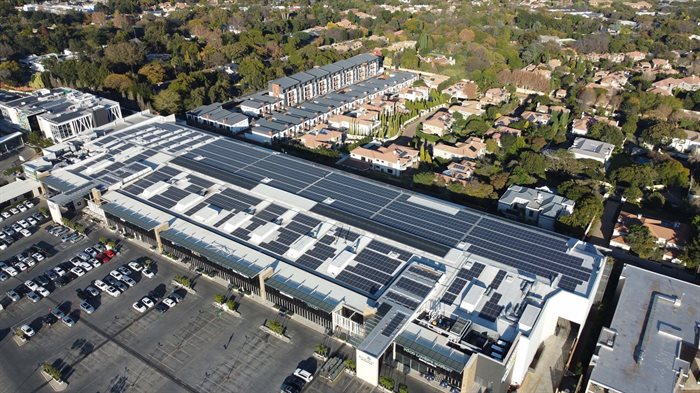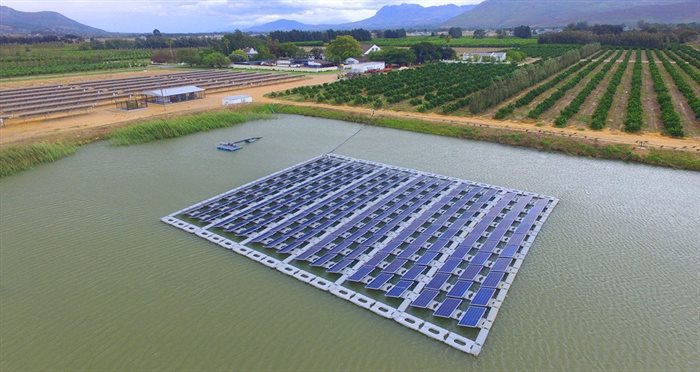Just over a month ago, President Ramaphosa announced significant measures to help alleviate the country's energy crisis and accelerate the country's adoption of renewable energy. The sigh of relief was almost tangible as he acknowledged that the solution lies in empowering the private sector to self-generate, following months of crippling load shedding.

Lee Smith, chief operations officer of New Southern Energy
As of last month, Eskom had already implemented load shedding equal to more than 90% of the energy it shed for the whole of 2021, according to the Council for Scientific and Industrial Research. While the utility’s staff strike certainly exacerbated matters, this event is not to blame for the situation alone. Eskom’s ageing fleet of coal stations, poor maintenance backlog and suffocating debt have been self-perpetuating for the past two decades.
Estimates of how much the recent load shedding has cost the country range from approximately R500m per day during Stage 4 to R4bn per day during Stage 6. While an exact amount would be difficult to confirm, this must be seen in the context of a trade and industry sector already struggling to get back on its feet post the pandemic, and one that has had to learn to swim in the current of unpredictable energy supply for the past 14 years.
In short, additional to setting up an Energy Crisis Committee, Ramaphosa’s intervention includes the change that companies (and homes) will be allowed to build power plants of any size without a license to meet their own needs (effectively removing the cap on self-generation projects) and to sell excess power to the grid, and the doubling of the next upcoming REIPPPP power supply tender window. While these steps are certainly a step in the right direction, they essentially only encompass the easy part. At the same time, the government is, essentially, asking the private sector to solve its own problems.

Nicolway Mall with New Southern Energy solar plant. Source: Supplied
Fundamental shift in financing needed
Adopting renewable energy for your business or home requires a fundamental shift from a financial perspective. While traditional energy simply involves a bill being paid monthly, with renewable energy there is a significant investment required upfront. This investment pays off in the long term as solar plants typically amortise themselves within 5-7 years, and produce power for 20–25 years when built correctly.
Some solar construction companies with vertically integrated finance structures have started offering a power purchasing agreement model for commercial, industrial and agriculture clients, and banks are beginning to understand the financing involved. However, the state must address the capital injection that is needed upfront for this intervention to work. The private sector needs to be incentivised to carry this capital and invest in solutions to overcome what is essentially a state shortcoming. An incentive would soften the investment substantially.
Megan Jarvis and Tyron Theessen 6 Sep 2022
Painstaking time frames
Looking at the situation from another angle, three weeks ago, the National Planning Commission (NPC) made headlines when it made the bold suggestion that South Africa’s energy crisis warrants declaring a state of emergency. While this was fobbed off by many as an extremist solution, we would be remiss to allow that moment of surprise to eclipse what may not be such a radical perspective after all. You see, the NPC had scrutinised the process more deeply and (rightly so) flagged that the turnaround times involved to get permission to connect systems to the grid and legally export excess energy back are a major roadblock to potential progress.
Working in the solar industry myself, I can attest to the painstaking time frames involved in connecting one solar plant to the grid – sometimes up to 18 months, with additional time required to get permission to export back into the grid. Lifting the cap will not have the desired effect if we don’t address this aspect simultaneously.

Marlenique - New Southern Energy solar plant. Source: Supplied
A different kind of work
When the word renewable energy comes up in this context, there is often a knee-jerk reaction by unionists who are concerned with job losses if the country lessens its reliance on coal. What this perspective fails to take into account is that coal power consumption is dependent on economic growth, which is hugely hampered by load shedding.
However, more importantly, it also reflects the misconception that renewable energy produces itself. This could not be less true. While renewables certainly involve a different kind of work, the sector is a lot more human resource intensive than it appears at face value. For example, solar systems need cleaning, maintenance and technical support to deliver their predicted yields. As solar energy becomes more pervasive, so too will this kind of work, adding a new layer to the workforce. A collaborative and inclusive engagement with unions would help equip the national workforce to become ‘solar-ready’ and allay fears of job losses as renewable energy proliferates.
A stronger local market would also support the return of internationally recognised solar equipment manufacturers to the country, following the many multi-nationals who initially responded to the REIPPPP’s local content requirements, only to close shop after years of stagnation.
Action-oriented mindset needed
We know from more mature markets that liberalisation of the grid is the path forward, which Ramaphosa has committed to. However, incentives are essential to closing the financing gap and the slow processes involved need to be addressed urgently in order to unlock a truly open power market which will impact the Southern African power pool. A new, action-oriented mindset, that is detail-oriented with speed at its core, is needed, and we can’t afford to wait any longer.






































